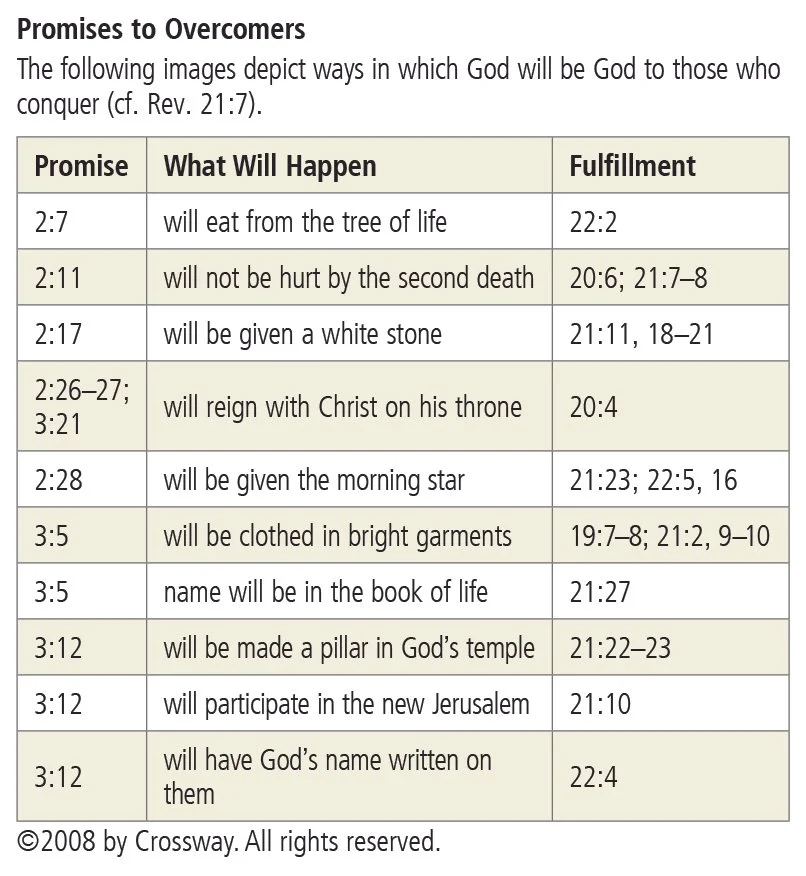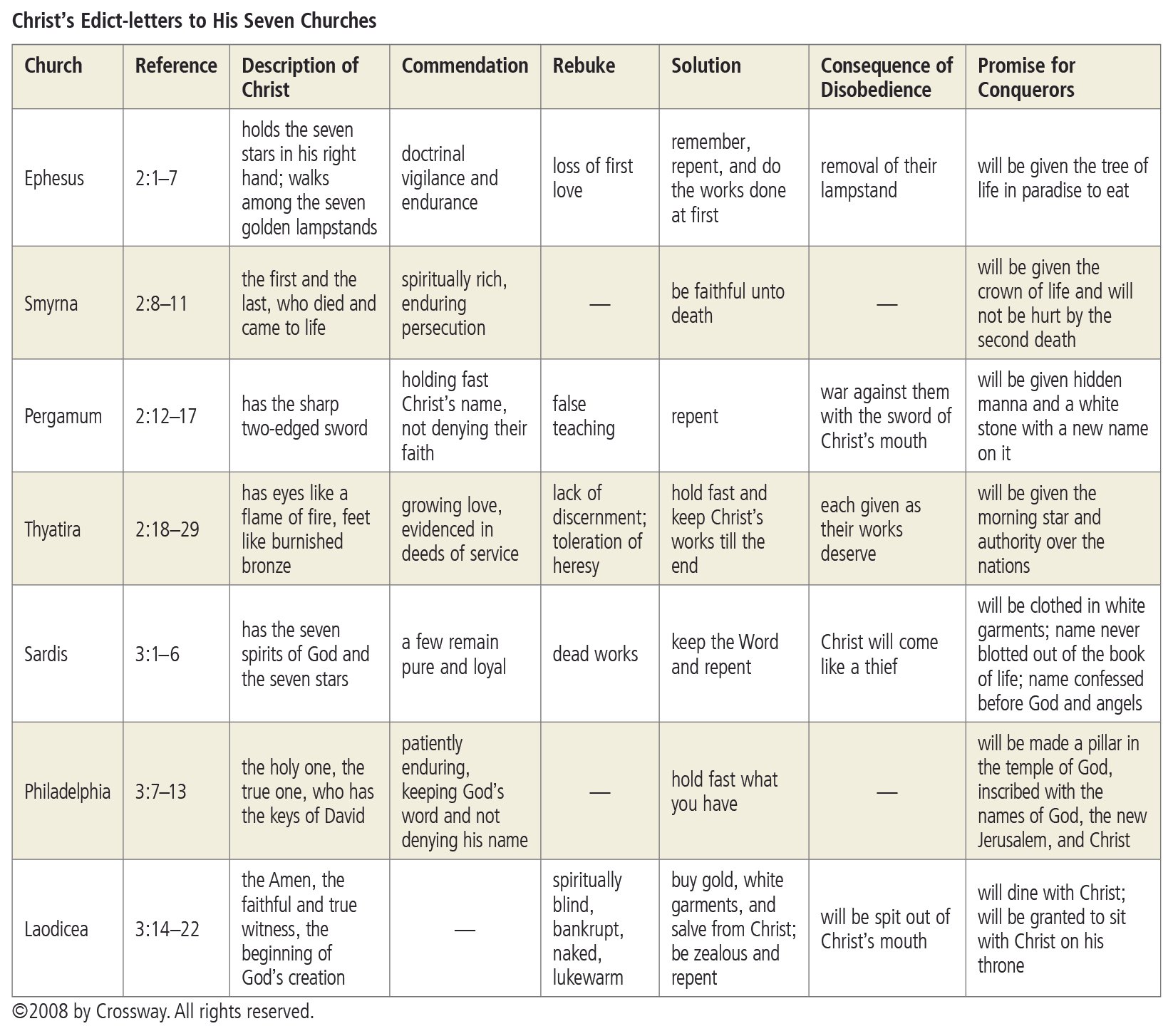The Seven Churches of Revelation
A Window into Their Church and Ours
By Paul Bernard
After setting the stage in Revelation 1, Jesus dictates letters to seven ancient churches in Asia Minor (modern-day Turkey), offering encouragement, correction, and exhortation. These churches—Ephesus, Smyrna, Pergamum, Thyatira, Sardis, Philadelphia, and Laodicea—were real congregations in the first century, facing specific spiritual and cultural challenges. Each message speaks personally to each church and reveals the heart of Jesus for His Church, both in the past and for today.
Ephesus, the first church addressed, was a bustling port and religious hub, home to the Temple of Artemis. Known for doctrinal purity and hard work, the church was rebuked for losing its “first love.” Christ urged them to return to their passionate devotion, reminding us that correct belief must be coupled with heartfelt relationship.
Smyrna faced intense persecution under Roman rule. Located in a wealthy city loyal to Caesar, Christians here suffered economically and physically for refusing emperor worship. Christ offered no rebuke—only encouragement to remain faithful, even unto death, promising the “crown of life.”
Pergamum was home to numerous pagan temples, including one to Zeus. The church was praised for holding fast to Christ’s name despite persecution, yet criticized for tolerating false teachings and moral compromise. It reflects the danger of blending faith with surrounding cultural pressures.
Thyatira was a center of trade and known for its guilds, which often involved idol worship. The church was commended for love and service but condemned for tolerating a false prophetess—symbolically called “Jezebel.” Christ called them to repentance, emphasizing holiness in personal and communal life.
Sardis had a reputation for vitality but was spiritually dead. Though the city was once a powerful capital, it had declined—mirroring the church’s decay. Jesus urged them to “wake up” and strengthen what remained, offering hope for those still faithful.
Philadelphia received only praise. Despite limited strength, they remained obedient and loyal. Located on a major trade route and often rocked by earthquakes, the church stood firm in unstable times. Christ promised them an open door of opportunity and a secure place in God’s kingdom.
Laodicea was wealthy and self-sufficient, known for banking, textiles, and medicine—yet its church was lukewarm, spiritually complacent. Jesus’ imagery of hot and cold water reflects the city's ineffective water supply. He urged repentance and offered intimate fellowship to those who opened the door to Him.
In these letters, Jesus reveals His knowledge of each church’s context and condition, revealing yet again, that he “walks among the churches.” Each mini-epistle serves as a spiritual diagnostic, challenging churches across all ages to examine their love, doctrine, endurance, and integrity in the face of cultural and spiritual pressure.



